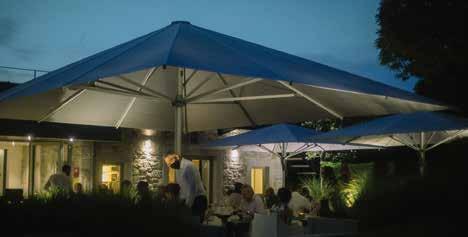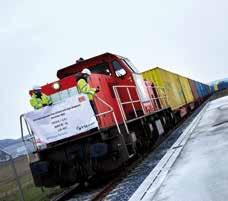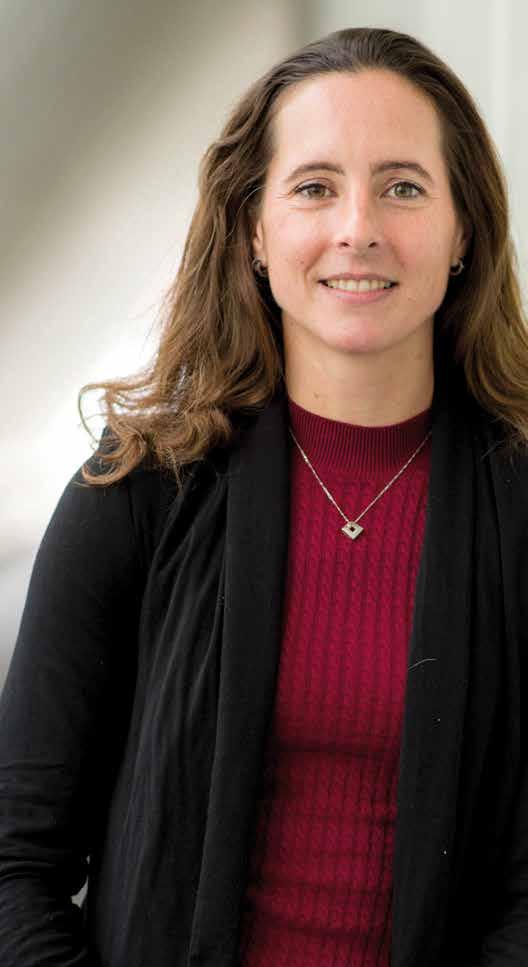
7 minute read
News and business updates
LIÈGE COMPANY SET TO MAKE COVID-19 VACCINE FOR US BIOTECH GROUP
Wallonia’s biotech, pharmaceutical and medical sector continues to make a significant contribution to the global fight against the Covid-19 pandemic. Liège biomedicine specialist Eurogentec – a subsidiary of the Japanese firm Kaneka – signed an agreement in December with US group Inovio to manufacture its Covid-19 candidate vaccine at its state-of-the-art production unit.
Advertisement
Inovio has assembled a global coalition of partners and funders to rapidly advance the development of the DNA vaccine. President and CEO Dr J Joseph Kim said: “Our partnership with Kaneka Eurogentec, one of the world’s largest and most experienced plasmid manufacturers, provides additional scale to our growing global manufacturing coalition. Kaneka Eurogentec will be a crucial member of Inovio’s global manufacturing consortium, supporting our plans to produce, manufacture and scale our Covid19 candidate, INO-4800.”
In 2010, former Liège University spinoff Eurogentec became part of Kaneka Corporation, a large Japanese chemical company focusing on technology and innovation. As the world leader in DNA plasmid, it has been developing and manufacturing gene and cell therapies for 15 years. DNA plasmid is the active pharmaceutical ingredient of DNA vaccines and is the key starting material of mRNA, which is among the new generation of vaccines.
To boost vaccine production, Kaneka Eurogentec plans to recruit 80 new employees for its unit at the Sart-Tilman Science Park in Seraing, near Liège. Eurogentec also recently joined forces with the Duve Institute department at UCLouvain to develop a joint research group on bacteria. The partnership aims to improve the treatment of cancers, infectious diseases, diabetes and genetic diseases using biopharmaceuticals.
eurogentec.com
Tournai style seen on Paris streets
Tournai design firm UrbaStyle counts Paris’s La Défense business district among its growing portfolio of public space projects. Large planters surrounded by seating stand at the entrance to its underground car park. The company is also responsible for the storm wall protecting the Belgian resort of Blankenberge and numerous urban structures, from play areas to tactile paving tiles that aid visually impaired people using public transport.
urbastyle.com
FOUR-STAR HOTEL AND TOP RESTAURANT OPEN IN HAN-SUR-LESSE CAVES DOMAIN
Visitors to one of Wallonia’s prime tourist sites, the Domain of the caves of Han – scheduled to reopen on 13 February – now have the option of an overnight stay with the autumn opening of the adjacent 117-room four-star Mercure hotel.
A tourist train links the hotel with the domain in the village of Han-sur-Lesse in the Ardennes in Luxembourg province. The project is a collaboration between Unibricks and franchise partner Accor. Michelin-star chef Benoît Dewitte and his brother Bernard have opened a restaurant, Merlesse, in the hotel.

GAULT & MILLAU AWARDS FOR LOCAL CHEFS
Liège artisan Benoît Nihant has been named Wallonia’s chocolatier of the year 2021 by gastronomic bible Gault & Millau. Nihant, a former engineer, launched his business from a garage at his parents’ home 15 years ago.
Christophe Pauly of Les Coq aux Champs (pictured above) was awarded the accolade of chef of the year 2021. The Michelin-star chef has managed his restaurant in the Liège province village of Soheit-Tinlot for the past 17 years. “Christophe Pauly works with the best ingredients, frequently from the Walloon region, and as a NorthSeaChef, he opts for our fishermen’s best catch,” said Gault & Millau’s Belux director, Marc Declerck. “Like all the best chefs, he attests to his creativity and technical skills by surprising us with exceptional desserts, light, airy or fun. Finesse and a perfect balance in his dishes are two recurring characteristics of his style.”
Other notable mentions included Bon Bon in Woluwe-Saint-Pierre, which retained the best restaurant in Brussels award. Among the young chefs of the year were Stefan Jacobs (Hors Champs, Gembloux) for Wallonia and Kevin Lejeune (La Canne en Ville) for Brussels.
FIRST FREIGHT TRAIN FROM CHINESE HUB ARRIVES IN LIÈGE AFTER 17-DAY JOURNEY
The first freight train from Yiwu in eastern China arrived at Liège’s Trilogiport on 8 December after a 17-day journey. Creating a new link with the Chinese small commodities hub, one of the largest in the world, the service will run four trains per week. Travelling 12,000km through Central Asia along the mythical Silk Route, the 600m train transported various e-commerce goods – textiles, hi-fi and spare parts – destined for the Netherlands, Germany, Spain and the UK as well as Belgium.
The new route confirms Liège’s Trilogiport as a fully trimodal rail, water and road hub, and links the city’s autonomous port with the global rail network. Transporting goods by train offers a sustainable alternative to air travel. The next challenge is to fill the returning trains to China with European goods and to create 2,000 jobs, direct and indirect, in the next five years.

BRIEFS
The prestigious Francqui-Collen prize – known as the Belgian Nobel – has been awarded to Cédric Blanpain, laboratory director for cancer and stem cell research and professor of medicine at the Université Libre de Bruxelles. He is the 25th researcher at the university to receive the award. Blanpain has previously receieved three ERC grants and was named as a researcher to watch by the journal Nature in 2012.
Liège Airport has been named best cargo airport in the world. The Air Cargo News Awards announced the winner via videoconference from a ceremony in London in December The airport, which specialises in freight, beat Amsterdam Schiphol, Brussels Airport, Anchorage and Hong Kong International Airport.
French electrical equipment distribution company CEBEO has announced the establishment of a new 12-hectare distribution centre in Tournai. Staff currently employed at its current site in Mouscron will move to Tournai, which offers more space for the new sustainable building, in 2023.
Ghent transport company Tailormade Logistics is increasing its investments in Wallonia by moving into a 50,000m² space in Gosselies, near Charleroi, on the site of the former Caterpillar factory. The new site will enable the company to diversify its activities to B2C deliveries.
IT specialist Odoo plans to recruit 1,000 people worldwide in 2021, following the success of the latest version of its management software launched in the autumn. The Walloon Brabant firm currently employs 500 people in Belgium and the new recruitment drive will double this figure.
IN THE SPOTLIGHT Sophie Laguesse
Neurobiologist Sophie Laguesse is fascinated by the effect drinking alcohol may have on brain development in young people. Her research at the University of Liège recently received a boost with grants from the Fondation Francqui in Belgium and the Brain and Behavior Research Foundation in the US

© Jean-Louis Wertz
What attracted you to studying alcohol, addiction and the brain?
I did my PhD on the development of the cortex, the area of the brain responsible for all higher functions, such as thinking and talking. That was OK, but afterwards I wanted to work on something a bit closer to human reality. I’ve always been interested in addiction, and the idea that a small molecule such as alcohol or nicotine can make you behave recklessly, so when I went to the University of California San Francisco for my post-doc, I chose a lab that worked on alcohol addiction. When I came back to Belgium, I decided to combine the two, and now I work on the effect alcohol has on the maturation of the pre-frontal cortex, the part of the cortex that controls emotion and impulsivity.
How do you go about this?
I’ve developed a model in which genetically identical mice drink voluntarily. And they drink a lot, the equivalent of binge drinking in humans. It’s as if they were drinking five beers in two hours. They drink during their adolescence, which is the equivalent of humans drinking between 13 and 18 years of age. We analyse their behaviour, then look again in late adolescence and in adulthood, so at the human equivalent of 25 and 40.
What have you found so far?
In late adolescence, the mice show no defects in behaviour, but in adulthood there is an increase in anxiety and depressive behaviour, and a decrease in cognitive performance and the ability to adapt to changes in the environment. And there is a huge increase in alcohol addiction. So, while you cannot see an effect at the time, binge drinking alcohol in adolescence has an insidious impact on adult behaviour.
What questions will these grants help you answer?
Now we are trying to understand how alcohol acts on the maturing brain to produce these defects in behaviour. Maturation involves changing the connections between neurons, so we are recording specific subtypes of neurons and looking at their morphology, to better understand how alcohol perturbs this process.
How might your work change how we approach alcohol addiction?
First of all, it helps with prevention. If we can show teenagers that binge drinking will affect them later in life, maybe this will help change their behaviour. Then, if we find out more about the mechanisms of alcohol addiction, maybe we can develop new, better therapies to treat adults.









